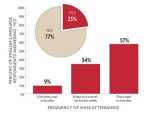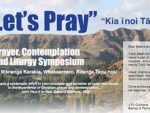The Archbishop of Glasgow, Scotland has told Catholics in his archdiocese not to kneel to receive communion.
“The Faithful should follow the General Instruction of the Roman Missal, namely coming to communion in procession and standing to receive Holy Communion,” wrote Archbishop Mario Conti in a letter to all his priests, dated August 25.
“Standing in our Western culture is a mark of respect: kneeling at the altar rails (where they continue to exist) is not the practice envisaged by the instructions in the Missal,” he stated.
Read the article...






